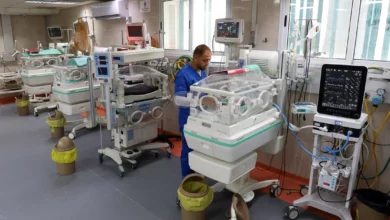LONDON/CAIRO — Egypt is finding it increasingly difficult to import fuel as foreign banks and traders pull the plug on credit and charge high premiums due to concerns over its financial and political stability, trading and banking sources said.
Sporadic international loans have so far helped, and the country requested up to US$4.8 billion from the International Monetary Fund (IMF) on Wednesday, but without such ad-hoc interventions, Egypt could quickly end up like debt-stricken Greece, dependent on a narrow pool of traders charging richly for supplies.
That could put a dangerous strain on Egypt's finances, which are already under pressure from high fuel subsidies it can ill afford to maintain but dare not cut in the precarious first months of new Islamist President Mohamed Morsy’s tenure.
Since the election of Morsy in June this year following the overthrow of former President Hosni Mubarak in 2011, the number of suppliers has shrunk as oil traders are struggling to secure letters of credit from banks.
"As soon as they changed the president, banks raised the costs of letters of credit involving EGPC," one trader involved in supplying Egypt said, referring to Egyptian General Petroleum Corporation.
A spokesperson for Egypt's oil ministry declined to comment and asked for queries to be directed to EGPC. No one at EGPC was available for official comment on Wednesday and Thursday.
Morsy took the world aback when he dismissed top generals earlier this month, raising fears that the army, from which all Egypt's presidents had come for six decades after ousting the monarchy, might retaliate, though they have so far raised no challenge.
In the strongest evidence to date of rising fuel import difficulties, traders said Egypt had to cancel a tender to buy crude earlier this month after receiving no bids, and also had to scrap parts of a gasoline import tender because the prices on offer were too high.
"The costs that banks apply to any transaction involving EGPC are now double that of a normal transaction," another trader said. Some tenders have been relaunched with new terms.
An official at EGPC, who declined to be named because he is not allowed to speak to the press, confirmed that some tenders had been delayed for a few days but declined to discuss reasons and details.
Egypt has already been struggling to maintain its massive oil subsidies since the revolution last year, as oil prices soared. The subsidies ballooned by 40 percent to almost $16 billion for the year ended 30 June, about a fifth of its entire budget.
Egypt's economy grew 2 percent in the 2011/12 financial year, down from 5 percent or more in previous years, as the revolution frightened away tourists and foreign investors and sparked a wave of strikes.
Cutting fuel subsidies would be a hard policy to swallow for Egyptians expecting a higher quality of life since the end of the authoritarian Mubarak's 30-year reign.
Lack of trust
Problems began building in May, when Egypt struggled to obtain timely letters of credit from major banks, which guarantee that a buyer's payment to a seller will be received on time and in full. As a result, traders delayed discharging tankers.
Since last year, Egypt has tried to do deals on a higher risk and more expensive open credit basis, usually given to a buyer without security.
But many traders were left in financial difficulties when state oil company EGPC took many months longer than expected to pay the bills, several traders said.
EGPC remains behind on payments. One trader said his company was owed demurrage — the charges paid by a charterer for keeping a vessel longer than the agreed unloading period — as a result of the shipping backlog in May. Vivo, a downstream branch of trading major Vitol, is also believed to be owed a large sum for fuels, another trader said. Vitol declined to comment.
EGPC's latest attempt to go back to open credit failed.
The company was forced to cancel a recent crude oil tender after facing resistance to the terms and has reissued the tender with the promise of a letter of credit.
"I would be very surprised if any company would deliver on open credit these days after the experience of the last 12 months," one fuel supplier said.
Another trader said his company had to stop taking part in EGPC tenders as European banks would not supply the credit.
Major trading houses Vitol and Glencore remain consistent diesel suppliers because of their deep pockets and their willingness to take risk.
"They use their own cash and they don't need credit lines from banks to finance their cargoes. So this could be one of the ways to exist," said one trader.
The development mirrors the situation in Greece, which also survives on oil from the same traders.
Risk on your shoulders
While the banks are still financing Egypt, rules are becoming more stringent.
Though EGPC still gets letters of credit from banks, the trader needs to have access to confirmation lines with a first class European bank.
"These are very limited now unless you are taking the Egyptian risk on your own shoulders," one trader said.
"The complication comes from some offshore banks when they open letters of credit and they reduce the credit period from the usual seven days to three days, and in some cases against cash," said a source from a Cairo-based global bank.
Traders noted that recent influxes of cash into Egypt have eased some worries.
Saudi-based Islamic Development Bank (IDB) provided $1 billion to finance energy and food imports in July, while Qatar lent $2 billion last week.
The latest version of the revived crude tender offers a letter of credit, but only from Egypt's national bank, which are not acceptable to most traders.
The rest will have to decide whether to take the risk.
"People are just going ahead on gut feeling," one of the traders said.



